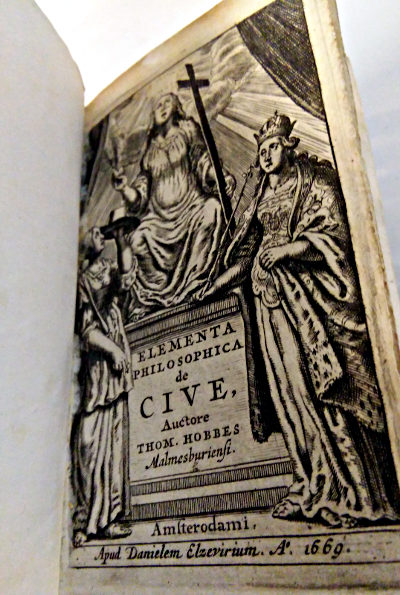A updated edition of Hobbes’ work on citizenry and the relationship between the church and the state. Published during Hobbes’ lifetime. All text in Latin.
About the book (from Wikipedia):
De Cive (“On the citizen”) is one of Thomas Hobbes’s major works. “The book was published originally in Latin from Paris in 1642, followed by two further Latin editions in 1647 from Amsterdam. The English translation of the work made its first appearance four years later (London 1651) under the title ‘Philosophicall rudiments concerning government and society’.”
It anticipates themes of the better-known Leviathan. The famous phrase bellum omnium contra omnes (“war of all against all”) appeared first in De Cive.
This work comprises three parts: Libertas (liberty), Imperium (dominion), and Religio (religion). In the first part, he describes man’s natural condition, dealing with the natural laws; in the second, the necessity of establishing a stable government is indicated. Finally, in the third part, he writes about religion.
About Hobbes (from Wikipedia):
Thomas Hobbes (5 April 1588 – 4 December 1679), in some older texts Thomas Hobbes of Malmesbury, was an English philosopher who is considered one of the founders of modern political philosophy. Hobbes is best known for his 1651 book Leviathan, which established the social contract theory that has served as the foundation for most later Western political philosophy. In addition to political philosophy, Hobbes also contributed to a diverse array of other fields, including history, jurisprudence, geometry, the physics of gases, theology, ethics, and general philosophy.



